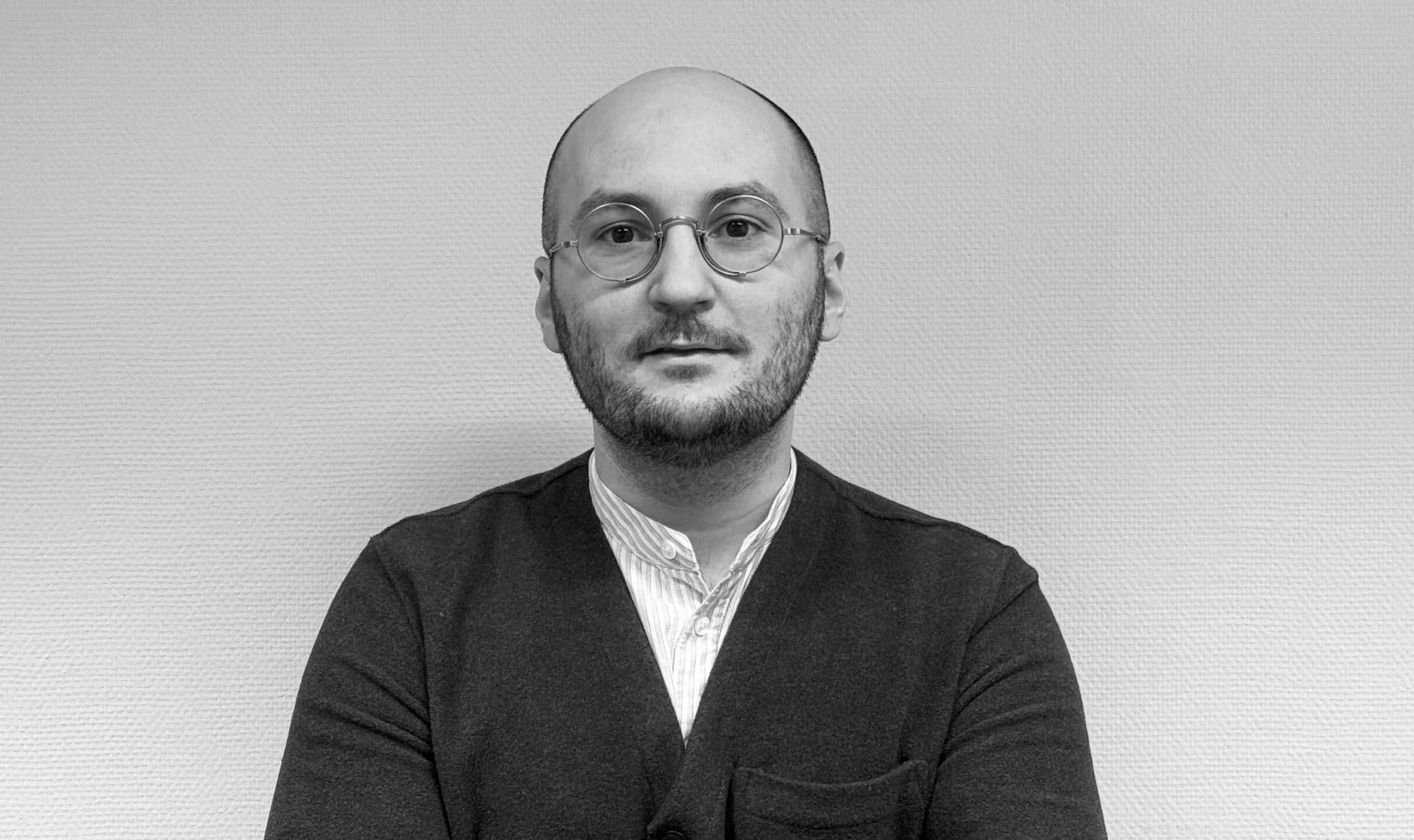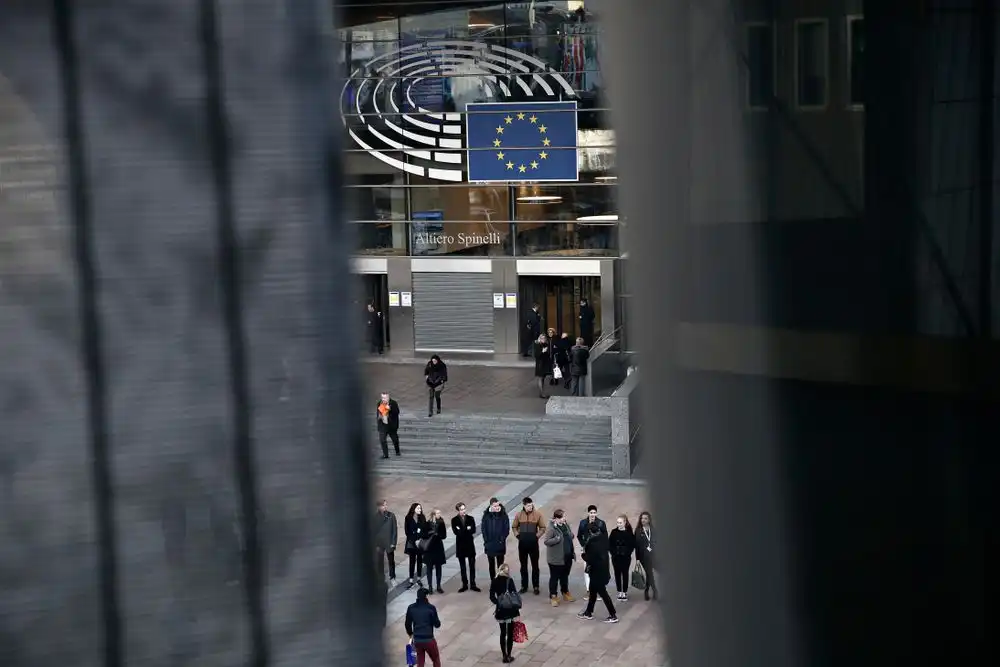Home>Meet our postdocs: Interview with Brice Didier

27.01.2025
Meet our postdocs: Interview with Brice Didier
Interview with Brice Didier
Brice DIDIER has joined CERI as part of the IRSEM Europe postdoctoral research programme, for 2024-2025. He has just been awarded the ESDC-Egmont Global Strategy PhD Prize 2024 for his PhD thesis entitled “European Union Foreign & Security Policy and Big Member States’ Ad Hoc Initiatives: Solving the Effectiveness-Legitimacy Equation”, conducted at the University of Geneva under the co-supervision of Prof. René SCHWOK (Uni. of Geneva) and Prof. Christian LEQUESNE (CERI-SciencesPo), defended in September 2024. He answers our questions.
Your PhD thesis looks at the EU’s foreign and security policy and the ad hoc initiatives taken by the “Big Three” (Germany, France, the United Kingdom) in response to major international crises. Can you give us an example of a case that you addressed in your thesis?
My thesis looks at the initiatives pursued by informal groupings of the European “Big Three” in response to major international crises, acting on behalf of the EU, but not necessarily based on a mandate. It examines three key cases of ad hoc initiatives in particular: the “Balkan Contact Group”, “E3”, and “Normandy” initiatives.
All three bring essential elements to my thesis and my argument, and each case study constitutes a strong added value to my research. Where the Balkan Contact Group on Bosnia and Kosovo set a historical precedent of Big Three ad hoc initiatives in the 1990s and allows me to draw key insights, the E3 initiative on the Iran nuclear issue launched by the Big Three in 2003 is often mobilised as a reference, notably in view of its sustainability, the role of the EU’s High Representative and the EEAS (European External Action Service), and the praise the 2015 “Iran deal” received. While the E3 remains by far the most studied case in the literature, the bipartite Franco-German Normandy initiative on the Russia-Ukraine conflict in Eastern Ukraine has been less scrutinised by other scholars. However, its study is equally rich and insightful, and also highly topical.

The Normandy initiative was launched in June 2014, after Petro Poroshenko’s election as Ukrainian President in May 2014, when French President François Hollande and German Chancellor Angela Merkel brought Ukrainian President Petro Poroshenko and Russian President Vladimir Putin together on the margins of the 70th D-Day anniversary celebrations in Normandy. It was born following the unravelling of the agreement facilitated by the Franco-German-Polish “Weimar Triangle” in February 2014 between Ukrainian President Viktor Yanukovych and the opposition aimed to solve the Ukraine crisis which had resulted from Yanukovych’s refusal to sign the Association Agreement with the EU in November 2013, and the failure of the Geneva talks in April. Prompting the setup of a Trilateral Contact Group (TCG) gathering the Organization for Security Cooperation in Europe (OSCE), Ukraine, Russia, and separatist representatives, the initiative allowed for the conclusion of the Minsk Agreements—"Minsk I” Protocol and Memorandum in September 2014, and “Minsk II” Package in February 2015—aimed at achieving a peaceful and lasting resolution to the conflict in Eastern Ukraine. But despite post–Minsk II de-escalation, their implementation would ultimately fail, and with Russia’s recognition and annexation of Donetsk and Luhansk and full-scale invasion of Ukraine as of February 2022, the initiative itself unravelled.
The study of the Normandy initiative is particularly interesting, both in terms of its genesis, configuration, and anchoring to the EU which are different from those of the pre-existing E3, and in terms of the debate it sparked on the political-diplomatic stage and in academia. With the Franco-German tandem acting where an EU divided and rejected by Russia was unable to, and while the US took a step back, the initiative remained deprived of a participation of EU institutions such as the High Representative. Nevertheless, until the edge of war, it established the primary, unchanged, and unchallenged framework for the resolution of the Russia-Ukraine conflict, and was ultimately elevated as a major EU foreign policy exercise.
Through your PhD, you seek to show that adhocism does not mean an anomaly but that it is a normal and transformational feature of the EU’s foreign policy. You claim that it calls for further investigation on the dynamics of coalition between EU member states, but also for taking a different approach to EU foreign policy. Can you tell us more about this?
Beyond the empirical richness of my case studies, I propose a novel theoretical-conceptual approach to ad hoc initiatives undertaken by informal groupings that counterbalances dominant assumptions existing in the literature on the phenomenon, by looking at EU foreign policy as it is, not as it should be.
Starting from the apparent paradox between the development of the EU’s Common Foreign and Security Policy (CFSP) and ad hoc initiatives undertaken by informal groupings, the various approaches that exist in the literature overall mobilise the formal EU-CFSP framework as a starting point. In my thesis, I propose a new theoretical-conceptual framework centred on the member states. By distancing my perspective from EU-CFSP-centrism, I conclude that adhocism is a normal feature of the EU foreign policy, of which it forms an integral part, and one that can be transformational for EU foreign policy actorness.
By advancing such a critical approach, I also seek to normalise adhocism in EU foreign policy studies, and call for further investigation on coalitional dynamics in EU foreign policy. In this regard, with a focus on the European Big Three, which also takes the UK’s exit from the EU into account, my thesis opens new avenues for research on post-Brexit foreign policy cooperation between the UK and the EU/EU member states. Beyond the Big Three, groupings of other member states also offer crucial research avenues.
You are currently a postdoctoral researcher at CERI. Can you tell us how your research agenda and project meet CERI’s goals and objectives? What are your current research projects?

As a political scientist and foreign policy analyst specialising in the EU’s foreign and security policy, diplomacy, and foreign policy strategy, with a keen interest in transatlantic relations, my research agenda has unfolded along two tracks.
My first research track’s main embodiment to date is my PhD thesis, which I conducted and defended at the University of Geneva. I am grateful to have benefitted from the co-supervision of Professor Christian Lequesne at CERI. Being now a postdoctoral researcher at CERI is, in this respect, a direct continuation of my thesis co-supervision experience. My postdoctoral work is driven by my intellectual willingness to contribute to CERI, including by building on my PhD work and its valorisation. I am very pleased to be able to present my thesis here, including as part of its transformation and publication, and in view of collaborations.
My second track directly concerns my postdoctoral project, which is a continuation of the research I began when undertaking my predoctoral research career as an assistant at the College of Europe in Bruges. Since 2017, prior to and in parallel with my PhD research, I have been working on the EU’s foreign policy strategies and strategic adaptation, particularly from a transatlantic perspective, through a variety of theoretical perspectives and cases—Russia, Syria, Egypt, Sahel, Iran, China, Indo-Pacific, counterterrorism, defence, climate, and trade. My postdoctoral research project follows on from these endeavours, and is in line with CERI’s research agenda—notably on the EU and its member states’ evolving approaches to China’s rise and its regional and global implications.
In the context of the ongoing reconfiguration of the world order, the adaptation of the EU’s strategic positioning responds to the constraints imposed by the relative decline of US hegemony and episodes of erosion of the transatlantic link, and by the growing weight of the Sino-American rivalry. My postdoctoral research scrutinises the EU’s strategic adaptation to this Sino-American rivalry, notably in the Indo-Pacific, which has become its epicentre, and where the EU is now seeking to position itself. Considering EU foreign policy as a plural ecosystem, my postdoctoral project aims to address this adaptation while taking into account the articulation of member states’ approaches with the EU’s, and reciprocally, its implications for them.
I am delighted to have joined CERI for this postdoctoral programme, and look forward to the results of my project.
Interview by Miriam Périer, CERI.
Photo credit:
- President François Hollande and Chancellor Angela Merkel, Verdun. Photo by Jean-Marc Richard for Shutterstock
- The European Parliament, Brussels. Photo by Alexandros Michailidis for Shutterstock
Follow us
Contact us
Media Contact
Coralie Meyer
Phone : +33 (0)1 58 71 70 85
coralie.meyer@sciencespo.fr
Corinne Deloy
Phone : +33 (0)1 58 71 70 68
corinne.deloy@sciencespo.fr
